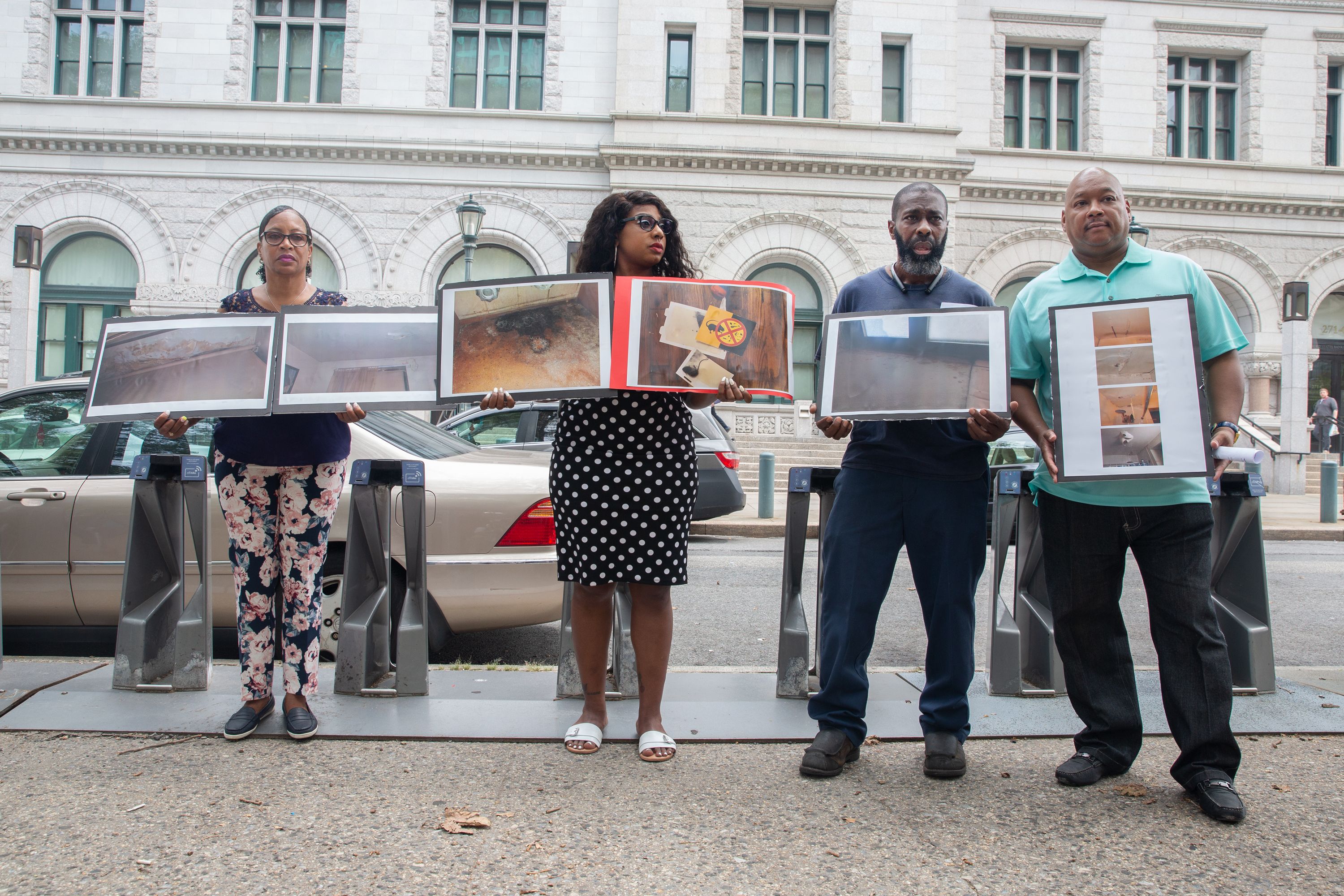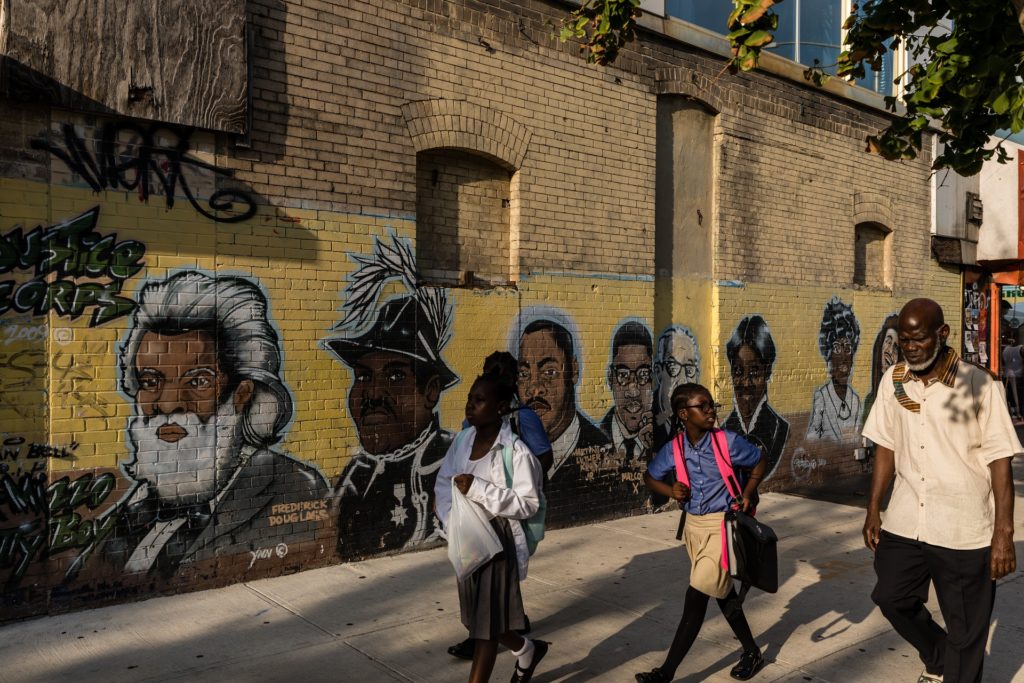Another ‘worst landlord’ nod for troubled housing group

Tenants Debra King, Latoya Wiggins, Makuna Mtambuzi and Dino Perera (left to right) show the unsanitary conditions in their Brooklyn apartment buildings operated by NEBHDCo. Photo by Ben Fractenberg/THE CITY
 This story was originally published on Dec. 17 by THE CITY.
This story was originally published on Dec. 17 by THE CITY.
For the second year in a row, the No. 2 spot on the public advocate’s “Worst Landlord Watchlist” has gone to leaders of a troubled Brooklyn nonprofit mired in tenant and financial woes.
Public Advocate Jumaane Williams identified Nathaniel Montgomery, Northeast Brooklyn Housing Development Corp.’s chief operating officer, as the private landlord with more serious violations than all but one other in the city.
